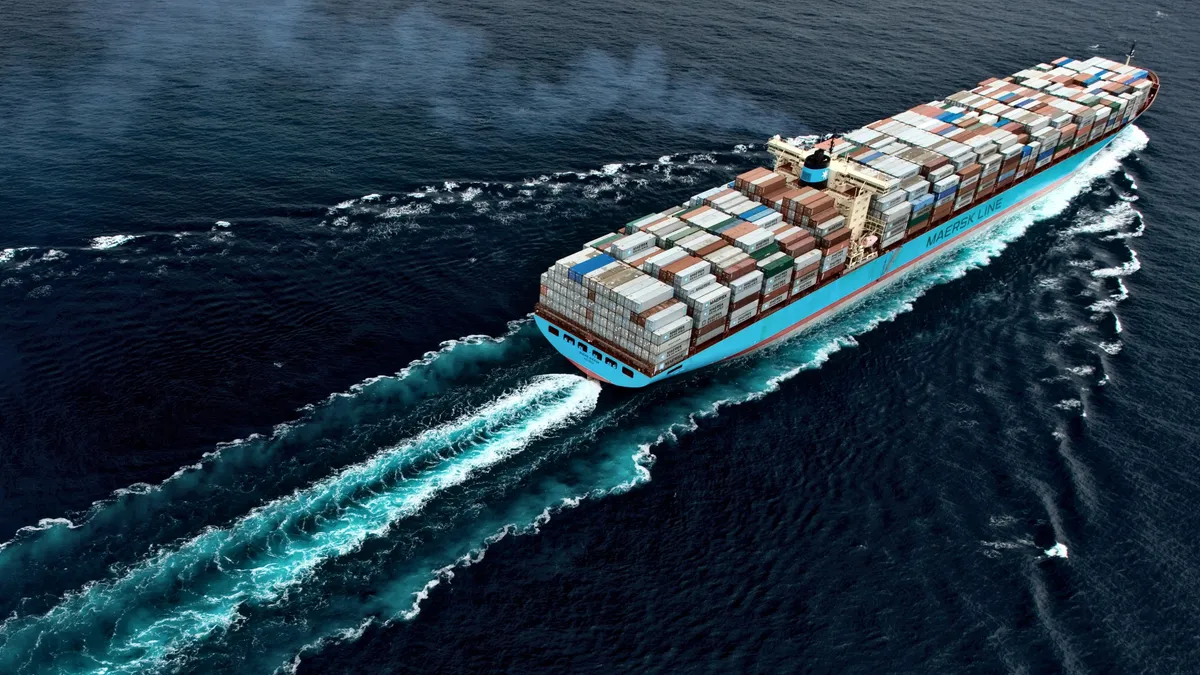Dive Brief:
- A.P. Moller - Maersk, Danone, Mercedes-Benz AG, Microsoft, Natura & Co., Nike, Starbucks, Unilever, and Wipro have formed the Transform to net-zero initiative in partnership with the Environmental Defense Fund and BSR, a global nonprofit organization and consultancy dedicated to sustainable business practices, according to an announcement Tuesday.
- Citing the climate emergency, member companies have committed to sharing best practices for achieving net-zero emissions across their value chains by no later than 2050, in addition to advocating for broader policy changes to move the private sector toward greater sustainability. The group said it is set to conclude its work in 2025.
- "Over the past decade, many businesses have committed to net-zero targets," BSR president and CEO Aron Cramer, said in a statement. "It is now time to accelerate the actions needed to achieve this essential goal. Our window for staying under 1.5 degrees of warming is closing, and fast."
Dive Insight:
Corporate sustainability coalitions and individual company commitments to decarbonizing supply chains have cropped up in recent months due in part to growing consumer pressure and recognition of the outsized role the private sector has to play in mitigating climate change.
In December, CMA CGM launched a global alternative energy coalition with the goal of accelerating progress on the maritime industry's transition to eco-friendly fuels and ship designs. And in January, Amazon, DHL, Ikea and others joined an electric vehicle alliance to expand the business case for widespread EV adoption in the transportation sector, currently responsible for roughly one-third of global carbon emissions.
Currently, members of the Transform to net-zero initiative have sustainability targets of their own. Maersk has committed to being carbon neutral by 2050, beating its emissions reductions target by nearly a decade in June. In January, Microsoft committed to being carbon negative by 2030, and Unilever has recently expanded its emissions reduction efforts into its supply base.
The initiative will provide members with an "actionable roadmap" to transitioning their business to net-zero emissions operations, Cramer said.
According the announcement, the group's work will be organized around nine principles including:
- Focused on transformation: Deliver on our individual commitments and translate into action, which will include corporate strategy, governance and accountability, finance and operations, risk management, procurement, innovation and R&D, marketing, and public affairs.
- Led by science and best practice data and methods: Commit to standardized approaches to achieve what the best available science requires for a 1.5 degrees Celsius world; commit to improving the quality and availability of research, data, and tools for all; commit to the highest return for the climate on investment.
- Robust reduction and removal across the extended enterprise: net-zero requires emissions reductions across the entire value chain, including impact of products and services and supply chain. net-zero requires greenhouse gas (GHG) emissions reductions aligned with the latest science, and increased capacity for GHG removals in the near term, to be the path to get companies — and the world — to net-zero no later than 2050 ... and will mean a mix of climate-positive actions should be pursued.
- Transparency and accountability: Public reporting and disclosure on progress towards net-zero transformation to key stakeholders, including investors, customers, consumers, and where required ― regulators; sharing information with all stakeholders on good practice to net-zero transformation.
- Just and sustainable transition: Marginalized groups and low-income communities bear the greatest impacts of climate change. Therefore, the group will help enable conditions needed to achieve effective, just, and sustainable climate solutions for people of all gender, race, or skills.













